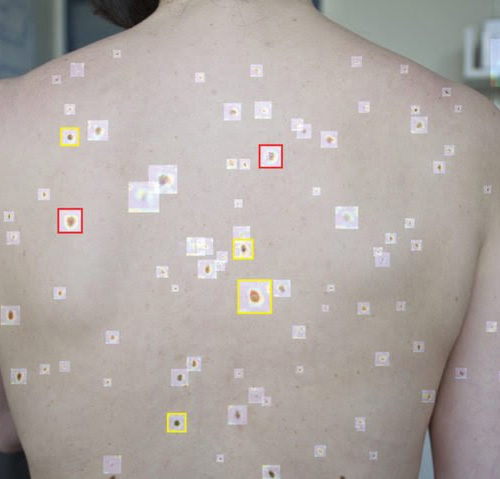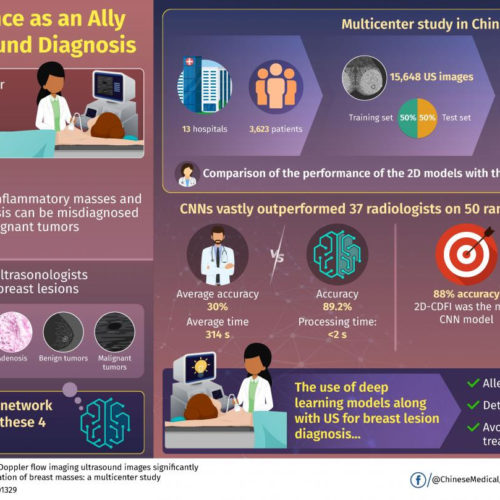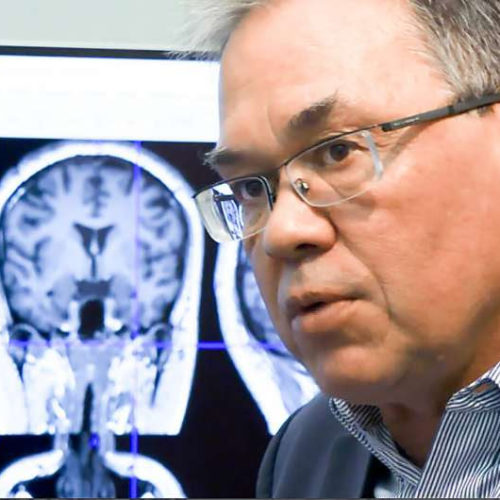Using routinely acquired pathology slides, the model accurately predicts the origin of cancers with unknown primary tumors. In 1 to 2 percent of cancer cases, the primary site of tumor origin cannot be determined. Because many modern cancer therapeutics target primary tumors, the prognosis for a cancer of unknown primary (CUP) is poor, with a...
Category: <span>Artificial Intelligence</span>
Artificial intelligence system may improve diagnosis of complicated metastatic cancers
BRIGHAM AND WOMEN’S HOSPITAL In 1 to 2 percent of cancer cases, the primary site of tumor origin cannot be determined. Because many modern cancer therapeutics target primary tumors, the prognosis for a cancer of unknown primary (CUP) is poor, with a median overall survival of 2.7-to-16 months. In order to receive a more specific...
New multiple sclerosis subtypes identified using artificial intelligence
UNIVERSITY COLLEGE LONDON Scientists at UCL have used artificial intelligence (AI) to identify three new multiple sclerosis (MS) subtypes. Researchers say the groundbreaking findings will help identify those people more likely to have disease progression and help target treatments more effectively. MS affects over 2.8 million people globally and 130,000 in the UK, and is...
An artificial intelligence tool that can help detect melanoma
Using deep convolutional neural networks, researchers devise a system that quickly analyzes wide-field images of patients’ skin in order to more efficiently detect cancer. Melanoma is a type of malignant tumour responsible for more than 70 per cent of all skin cancer-related deaths worldwide. For years, physicians have relied on visual inspection to identify suspicious pigmented lesions...
Going deep: Artificial intelligence improves accuracy of breast ultrasound diagnoses
CACTUS COMMUNICATIONS IMAGE: Ultrasound is an invaluable diagnostic tool for the early detection of breast cancer, but the classification of lesions is sometimes challenging and time-consuming. Could artificial intelligence hold the answer to solving these problems? CREDIT: CHINESE MEDICAL JOURNAL In 2020, the International Agency for Research on Cancer of the World Health Organization stated that breast...
AI-based tool detects bipolar disorder at earlier stages
by Adrianna MacPherson, University of Alberta Andrew Greenshaw, professor and associate chair in the Department of Psychiatry, says applying machine learning to medical diagnostics depends on having consistent, standardized data available to “teach” the AI-based systems what to look for. (Photo: Faculty of Medicine & Dentistry) Many people with early-stage or first-episode bipolar disorder have cognitive...
Amazing possibilities of using artificial intelligence in pathology
Reviewed by Emily Henderson, B.Sc. Mar 9 2021 Artificial intelligence can already scan images of the eye to assess patients for diabetic retinopathy, a leading cause of vision loss, and to find evidence of strokes on brain CT scans. But what does the future hold for this emerging technology? How will it change how doctors...
New AI platform can help assess vascular diseases
Mar 23 2021 An international team of scientists from Nanyang Technological University, Singapore (NTU Singapore), Brown University and the Massachusetts Institute of Technology (MIT) has developed an artificial intelligence (AI) platform that could one day be used in a system to assess vascular diseases, which are characterised by the abnormal condition of blood vessels. The...
IBM develops AI to invent new antibiotics – and it’s made two already
By Michael Irving March 11, 2021 IBM has created an AI system that can find new antibiotic candidates quickly, to help fight the rising superbug threatphodopus/Depositphotos Hiding behind the current COVID-19 pandemic, another serious public health threat is looming – the rise of antibiotic-resistant “superbugs.” New antibiotics are needed to help turn the tide, but developing them...
Artificial intelligence reveals current drugs that may help combat Alzheimer’s disease
MASSACHUSETTS GENERAL HOSPITAL BOSTON – New treatments for Alzheimer’s disease are desperately needed, but numerous clinical trials of investigational drugs have failed to generate promising options. Now a team at Massachusetts General Hospital (MGH) and Harvard Medical School (HMS) has developed an artificial intelligence-based method to screen currently available medications as possible treatments for Alzheimer’s...





